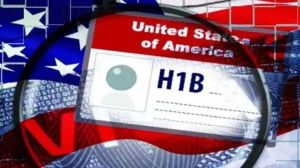Paytm founder Vijay Shekhar Sharma has lashed out social networking giant Facebook and its social messaging app WhatsApp. In a series of tweets, Sharma hit out at WhatsApp for introducing its payments feature in India. “India must welcome global tech companies,” Sharma, who has been vocal about the rise of international giants in India, tweeted on Wednesday. “It must not let them colonise our Internet. Their ambitions and intentions are clear in last few weeks,” he added.
WhatsApp had recently launched its payment feature in India and poses a major threat for Paytm which has dominated the Indian market. WhatsApp’s payment service, which works on top of the UPI infrastructure, has the most simplified user interface of any payment app in India, which is another problem for Paytm.
After failing to win war against India’s open internet with cheap tricks of free basics, Facebook is again in play.
Killing beautiful open UPI system with its custom close garden implementation.
I am surprised, champions of open @India_Stack , let it happen ! https://t.co/wIsNuF1AiB— Vijay Shekhar (@vijayshekhar) February 14, 2018
India must welcome global tech companies and must not let them colonise our Internet.
Their ambitions and intentions are clear in last few weeks ! https://t.co/bbZJIaloqf— Vijay Shekhar (@vijayshekhar) February 14, 2018
Sharma, while pointing the threat from WhatsApp said that these tactics are similar to the ways ‘Microsoft hurt open web standards’ decades ago. “After failing to win the war against India’s open internet with cheap tricks of Free Basics, Facebook is again at play,” Sharma posted on the micro-blogging website. “Killing beautiful open UPI system with its custom close garden implementation. I am surprised, champions of open India Stack, let it happen!” he said.
There is no official response from WhatsApp on this matter. But, Neeraj Arora, vice president of business development for Facebook’s WhatsApp has resigned from Paytm’s board of directors. Arora who has previously worked for Google had played an important role in increasing the reach of WhatsApp.
All incumbents complaining about Whatsapp getting unfair advantage in its UPI implementation to further its business interests – “Those who live in glasshouses, ……. “ . There is clear record of private companies who got access first and exclusively when UPI was launched.1/n
— Bipin Preet Singh (@BipinSingh) February 14, 2018
Those complaining abt Whatsapp are the same folks who refuse to entertain neutral payment options(like @MobiKwik )on their own ecom websites/apps and instead promote only captive wallets. A standard of interoperability should incl wallet acceptance as well 2/n
— Bipin Preet Singh (@BipinSingh) February 14, 2018
To me, the funniest and most ironic aspect of all this UPI stuff is that no one is talking about our poor banks. With UPI , banks wanted to compete with wallets. I wonder if they’ve already ceded too much control to non-banks. The story repeats . 4/4
— Bipin Preet Singh (@BipinSingh) February 14, 2018
Sharma’s tweets haven’t gone well with some of the other competitors as well. “All incumbents complaining about Whatsapp getting unfair advantage in its UPI implementation to further its business interests – Those who live in glasshouses, ……. . There is clear record of private companies who got access first and exclusively when UPI was launched.1/n,” Bipin Preet Singh, Mobikwik CEO said in a tweet.
All companies threatened by Whatsapp payments are going to tag it as anti national and try to pull it down as it’s hard to win on merit against network effects of Whatsapp.
This strategy worked for Patanjali and wonder if it will work for payment companies.
— Kunal Shah (@kunalb11) February 14, 2018
Meanwhile, Kunal Shah, founder and former CEO of e-payments company Freecharge used Patanjali as an example to hit out at Vijay Shekhar Sharma. “All companies threatened by Whatsapp payments are going to tag it as anti national and try to pull it down as it’s hard to win on merit against network effects of Whatsapp. This strategy worked for Patanjali and wonder if it will work for payment companies,” he wrote on Twitter.








